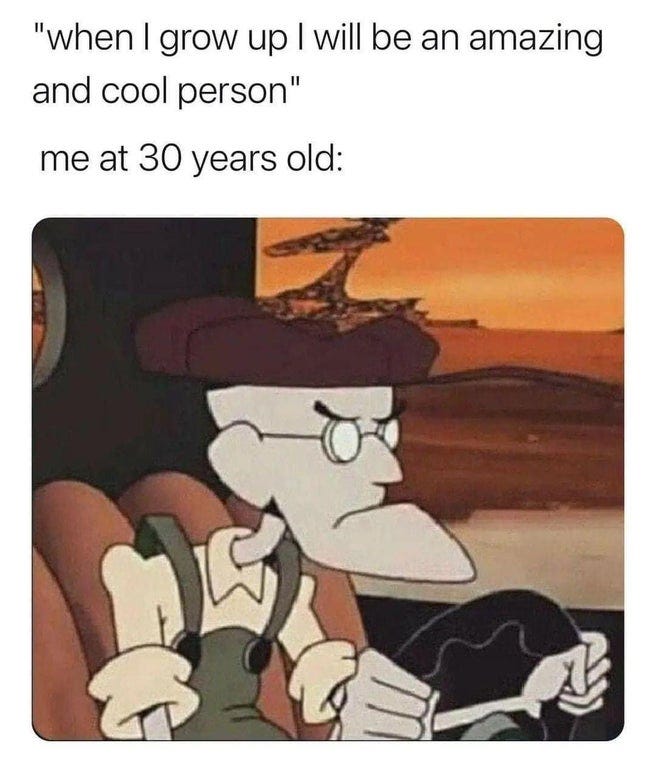How Web3 Will Rebuild Media
Creators AND Users Get Paid
Bitcoin’s mission is to fix the broken financial system. And it stands a real chance of doing just that. Web3 will fix lots of broken systems. But the big one is the media.
Here’s how it’s gunna happen.

Media is Broken
Content creation is a dream job for millions of people. But it’s nothing more than a pipe dream in any practical sense.
That’s primarily for one reason. Advertising is the best way to monetize content. But just because it’s the best way doesn’t mean it’s good.
It creates a perverse incentive structure for creators.
More views = more money
So long as this is true, creators have a powerful incentive to create content that gets the highest number of views. And views rarely reflect the quality of the content itself.
Instead of creating content with subtlety and nuance, people are incentivized to create emotionally charged clickbait. And let’s not ignore that content platforms promote this garbage because they know it gets clicks.
Regardless of what people say, social media platforms don’t really stop hate speech or fake news from circulating.
Don’t forget. More views = more money. This is as true for the platform itself as the creator.
Which is why every attempt by big tech to stop misinformation and propaganda is a half measure. They won’t stop it completely. That would mean losing money.
They do the bare minimum. Just enough so their PR people can say “we banned X number of accounts.” Meanwhile, the root cause hasn’t been addressed.
They’re putting Band-Aids on a broken arm and telling you the problem is fixed. All the while, big tech is laughing all the way to the bank.
The Money Problem
As broken as digital media is right now, it still creates lots of wealth. But only a fraction of it goes to the creators. You know, the folks creating the value.
The vast majority of it is appropriated by big tech.
Big tech is eating the cake right now. While the creators are fighting for breadcrumbs. Imagine all the money that goes to pumping big tech stock prices, employee salaries, etc.
Imagine if that money went to creators instead. How much easier would it be to go full-time online?
But that’ll never happen. Big tech is, in practice, a bunch of monopolies. They’ve got network effects on their side. Not to mention billions of dollars in liquid capital.
That’s why they get away with paying creators so little. After all, where else are the creators gonna go?
All the Wrong Reasons
Do you know why cancel culture is a thing? Because generating outrage gets views. If the Internet has made one thing clear it’s that anger will get a response.
It’s literally profitable to turn ordinary people into super villains. One little mistake can ruin your life. All it takes is one snarky blogger to write a hit piece on you.
“The reason the knives are so sharp online is because the pie is so small.”
- Ryan Holiday in Trust Me I’m Lying.
The system itself is fundamentally flawed. The problem is not going to magically disappear. If it hasn’t by now, you’d be foolish to expect it will in the future.
We need to build entirely new systems.
Web3 Fixes This 🤌
Let’s first acknowledge that Web3 doesn’t fix everything. More often than not, it’s a solution looking for a problem.
But it might actually work with digital media.
Web3 (blockchain) is a good solution only under 2 specific circumstances.
The system must be decentralized
Participants are adversarial
The classic example is Bitcoin. Money must be decentralized. Think about traditional finance. Does anyone really trust the Fed? A central bank was always a bad idea.
Secondly, participants are adversarial because they would take more for themselves if given the opportunity. You know, the way the bankers already do.
Any system that can be exploited will be exploited. And the beauty of Bitcoin is that it can’t be. Or, at the very least, it’s extremely difficult.
Media fits both of these criteria too.
The system must be decentralized. Think about all the decisions that must be made.
What gets banned?
Who makes the money?
Who decides what truth is?
What content gets promoted?
What style of content has the strongest incentive?
The problem right now is that these decisions are all made by giant tech corporations. And as any American should know, corporations exist for one reason: to make money.
So it shouldn’t come as any surprise that every decision is made to maximize profit. In other words, the central party prioritizes its own interests above others.
Not to mention the fact that media creators are inherently adversarial. There’s a fierce competition for the limited number of views.
Let’s think about a concrete example. Imagine if one YouTuber had the power to edit every single video on the site. What do you think they would do?
They would either edit them to make other videos worse or just delete them altogether. This would maximize their own engagement and reach. The same can be said for media companies, blogging platforms, etc.
So, we can agree that 1) media must be decentralized and 2) creators are adversarial.
How it Might Work
We’re still early into Web3. And I’m not going to do a fool's errand by trying to predict exactly how media will look. It’s impossible to say.
But here are some things that will definitely play a role.
NFTs
The problem in the traditional creator economy is that in addition to having a large audience and amazing content, you need to have a product to sell.
But making a great product is hard. And you can seldom do both. Which is why creators rely on advertising. Selling someone else’s product.
There’s some money to be made from T-shirts and merch. But in the grand scheme of things, it’s fairly insignificant. Especially for smaller creators.
NFTs fix this.
The people who love your content the most can purchase it directly from you. And own it in a way that’s never been possible before.
Creators will have a strong incentive to prioritize deep relationships with their audience. Instead of 1 million average viewers, you’re looking for 100 die-hard fans.
NFTs Will be part of the future.
Buying a creator's NFT isn’t just an excuse to financially support them. It becomes an investment.
Aligned Incentives
If a small creator launches an NFT collection, it may go up in value. A lot.
Imagine if PewDiePie had created an NFT for his first video when he was starting out. If anyone bought it, it may have sold for a few dollars, if that. But how much would it be worth today?
Fans can profit from the success of creators.
This changes everything because it aligns the financial incentives of creators & viewers. If your favorite creator wins, you win too.
DAOs
Every organization is a social construct. They don’t exist in reality. Only in our minds. From governments to companies to local communities.
To this day, certain kinds of organizations have had more success than others. The idea of government is a great example. Nearly every human on earth is ruled by a government right now.
It’s a powerful social construct that works.
DAOs are a social construct in much the same way. However, they address many of the issues with traditional organizations.
Tangible membership - token owners are members of the DAO
Onchain governance - voting is done in a way that can be trusted
Voluntary labor - members decide how much or how little they participate
Aligned incentives - every member benefits if the value of the token appreciates
The biggest DAOs of the century will be started by popular creators. The leaders who can rally people for or against causes.
DAOs will shape the creator economy of the future in a few important ways:
Coordinating large groups of people & capital
Creating bounties for things that need to be done
Building a community that collaborates & empowers members
It’s impossible to predict where DAOs will go. But as passionate creators adopt Web3 tech, the possibilities will be limitless.
DAOs & NFTs make otherwise unprofitable (but important) projects profitable.
The future of creation and education is bright.
Final Thoughts
As broken as the media landscape is right now, there’s still hope. Hope that we can build better business models. Where truly valuable work can be created. Where the biggest stars online aren’t sensationalists that divide us. But experts that educate & entertain.
I have a feeling that one day we’ll look back on the current media landscape the way we do with feudalism. “How barbaric. I can’t believe people actually tolerated that.”
Cheers to the future of the creator economy. And the brilliant builders who are making it possible.

